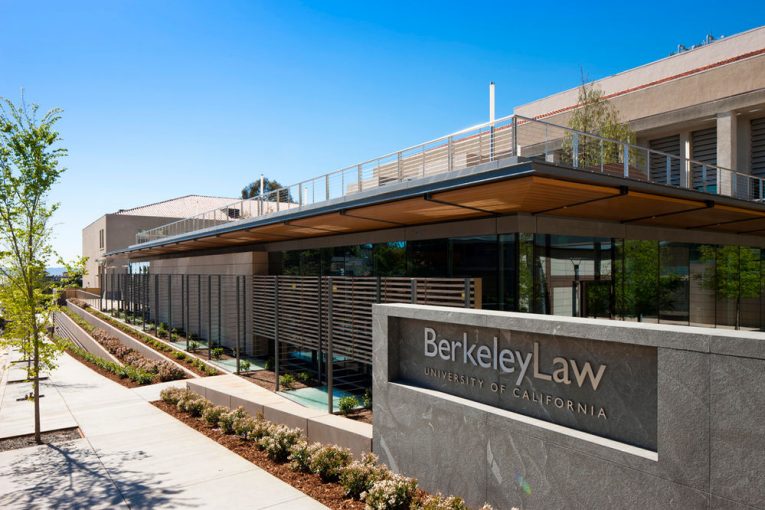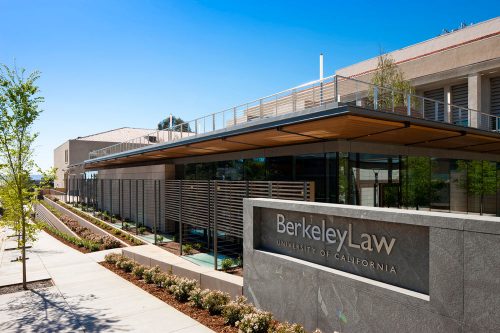

UC Berkeley
By Sarah Weld
BERKELEY, CA – The first-ever national conference for prosecutors – at least 65 were in attendance from throughout the U.S., including 15 states – was held at Berkeley Law here in December, focusing on how to successfully prosecute law enforcement officers accused of excessive force.
The three day “Prosecution of Law Enforcement Misconduct” was co-hosted by Berkeley Law’s International Human Rights Law Clinic and Criminal Law & Justice Center, and the Prosecutors Alliance of California.
Berkeley Law said Minnesota Attorney General Keith Ellison was one of several keynote speakers, that also included California Attorney General Rob Bonta, Alameda County District Attorney Pamela Price and Cook County (Illinois) State’s Attorney General Kim Foxx.
The affair also included panel discussions, and opportunities for prosecutors, academics, and victims’ family members to share ideas and resources, said Berkeley Law, noting, “Despite the recent surge in elected progressive prosecutors nationwide, few resources have been available for them to learn how best to evaluate and prosecute police use-of-force cases — until now.”
Berkeley Law noted Prosecutors Alliance is designed to “fight the politics of mass incarceration and end the failed strategies of the past.”
The alliance was founded in 2020 by current and former elected California district attorneys, including current Los Angeles DA and former San Francisco DA George Gascon, former San Francisco DA Chesa Boudin, and current Contra Costa County DA Diana Becton,
“We are thrilled by the overwhelmingly positive response to our inaugural conference on the prosecution of fatal, unlawful force by law enforcement. We are committed to empowering attorneys handling these complex cases,” says Cristine DeBerry, executive director of Prosecutors Alliance.
DeBerry added, “By providing them with comprehensive training and accessible resources, we aim to catalyze meaningful progress within communities nationwide, always ensuring that the pursuit of justice remains at the forefront of our collective efforts.”
Also in attendance were family members of people killed by police — including Philando Castile, Sean Monterrosa and Walter Scott, said Berkeley Law, adding they “shared their difficult experiences navigating the criminal justice system on behalf of their relatives and recommended policy shifts to address excessive use of force and how hard it is to prosecute police officers.”
Michelle Monterrosa, whose brother Sean was killed by Vallejo police in 2020, said, “It’s essential to bring the family perspective because often we’re left out of the conversation. My goal was to bring Sean’s story forward and share everything we’ve had to go through to get to where we are. Families who have been harmed by police violence are not met with compassion or love or humanization. We have to carry the burden of becoming our own lawyers, experts, and detectives.”
In that case, said Berkeley Law, police thought he was holding a gun, but it was a hammer. The officer has not yet faced charges and was reinstated in September.
In the past 12 months, 1,122 people have been shot and killed by police in the U.S., with 9,155 killed since 2015, according to ongoing analysis by The Washington Post (opens in a new tab)
Roxanna Altholz ’99, co-director of the International Human Rights Law Clinic and panel moderator, charged, “Excessive use of force by police officers constitutes a human rights violation under international law so the international community has repeatedly called on the United States to end the impunity enjoyed by police officers.
“This conference provided a space for prosecutors to have a long overdue discussion about how to improve prosecution strategies. Listening to the family members of Philando Castile, Walter Scott, and Sean Monterrosa speak directly to prosecutors from 15 states gathered in one room was a rare and powerful moment. Their message was clear: Justice demands the criminal prosecution of police who kill.”
In addition to the family members’ panel, the conference featured five other panels over two days, addressing police use-of-force policy and practice, investigation techniques and evidence challenges, appropriate use of expert witnesses, lessons learned from recent prosecutions, and communications and transparency in high-profile cases. There was also time for small group discussions and casual conversation during meals — critical for exchanging ideas and information.
Anthony Scott’s unarmed brother, Walter, was killed in North Charleston, South Carolina, during a traffic stop for a broken brake light in 2015. He and Monterrosa noted several prosecutors at the conference thanked them for sharing their experiences.
According to Berkeley Law, Scott said, “I feel hopeful.”
Scott, who speaks to new police recruits every year in North Charleston, sharing how one police officer’s bad decision completely changed his family’s life. “If I got to just one or two of those prosecutors, so when they’re faced with this situation again, instead of dismissing themselves from it, they decided to take it on and fight their hardest to win, we’ve had success.”
Scott added, “It’s important that prosecutors see how this actually affects families, to get no results, to get nothing done. And how bitter it makes the families when it comes to police officers and prosecutors. When they dismiss themselves, when they don’t fight to their fullest extent, it hurts the families. And when you have no type of justice, where are you to go? How are you to fight? What are you to do?”
Boudin, founding executive director of Berkeley Law’s Criminal Law & Justice Center, argued, “We cannot have real justice or real safety in our communities when law enforcement officers are allowed to get away with murder. In fact, when communities impacted by crime lose trust in law enforcement, they stop reporting crime, they stop cooperating with investigators, and as jurors they stop believing police officers who are the key witnesses in virtually every criminal case prosecutors file.”
“My message to the prosecutors is to be transparent and communicate. If there is no victims compensation fund within your department, create one,” Monterrosa told Berkeley Law. “And don’t be afraid to be bold. You’re in a position of power and you can essentially prevent this from happening. You have all the tools, you know the law better than we do, and it’s time for you to be bold and active and hold police accountable.”




